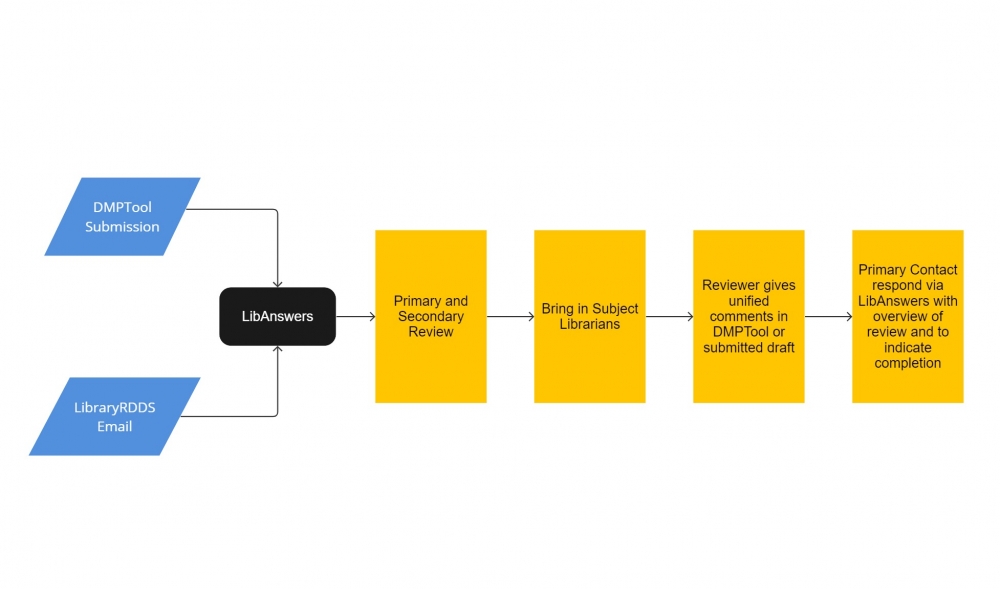One of the key services that the Research Data & Digital Scholarship team provides for the Penn community is the review of data management plans (DMP), also called data management & sharing plans (DMSP). A data management plan outlines how a project’s data will be collected, processed, analyzed, described, preserved, and shared during the course of the project. Most federal funding agencies require a DMP for a grant application, and they will increasingly become part of the fabric of research projects as policies like the January 2023 NIH Data Management and Sharing Policy and August 2022 Nelson memo are implemented. These plans can be overwhelming, especially for emerging researchers, those have never had to write one before, or whose project would produce novel, interdisciplinary data. We believe that by providing DMP reviews, consultations, and expertise, that we can support FAIR, ethical, and well managed research.
Since our implementation of the data management plan review service in Fall 2022 up till the writing of this blog post, we have conducted 36 plan reviews. This blog post will review the process of how we conduct a DMP review, allowing you to get a peek behind the curtain at the work of the RDDS.
Researchers can submit a draft copy of their DMP to our team either directly from DMPTool or via our LibraryRDDS@pobox.upenn.edu email address. We use a ticketing system called LibAnswers to keep track of our requests, which allows our team to have an organized way of responding. We have two librarians on the RDDS team who conduct DMP reviews currently, Lauren Phegley and Lynda Kellam. Our goal is to ensure that researchers write plans in a way that meets the funders expectations. In addition, we also make suggestions to improve a data set’s organization, discoverability, interoperability, reusability, and preservability in the long term.
Once we get a submission, we send a confirmation email to the submitter and ask any clarifying questions that we might need. Either Lauren or Lynda will be the primary reviewer, doing the first in-depth review, and the other will be the secondary reviewer, providing another pair of eyes on the plan. This allows for a more granular level of feedback and a deeper knowledge pool to draw from. The plan is then sent the subject specialist librarian(s) associated with the submitters area for review. The subject specialist is able to answer questions we might have and offer insight that is outside our areas of expertise. We rely deeply on the expertise of our colleagues whose support is necessary for the success of this service. Once we have all of the feedback collected, the primary reviewer will send the feedback to the submitting reviewer.
Our turnaround time is one business week from the time of submission, which we need in order for us to complete the level of in-depth reviews that we do. This is especially important during crunch time for high application funding deadlines, like NIH R01 grants, as we get flooded with reviews. Certain reviews require us to dig deep into the documentation of a repository, reach out to our networks, or poke federal funders for clarification. We require this turnaround time for us to be able to produce meaningful feedback and answer your questions. Reviews should be submitted with plenty of time for the researcher to make updates to their plan based on our feedback.
Want a DMP review, have a question, or want to collaborate? Contact us at LibraryRDDS@pobox.upenn.edu
